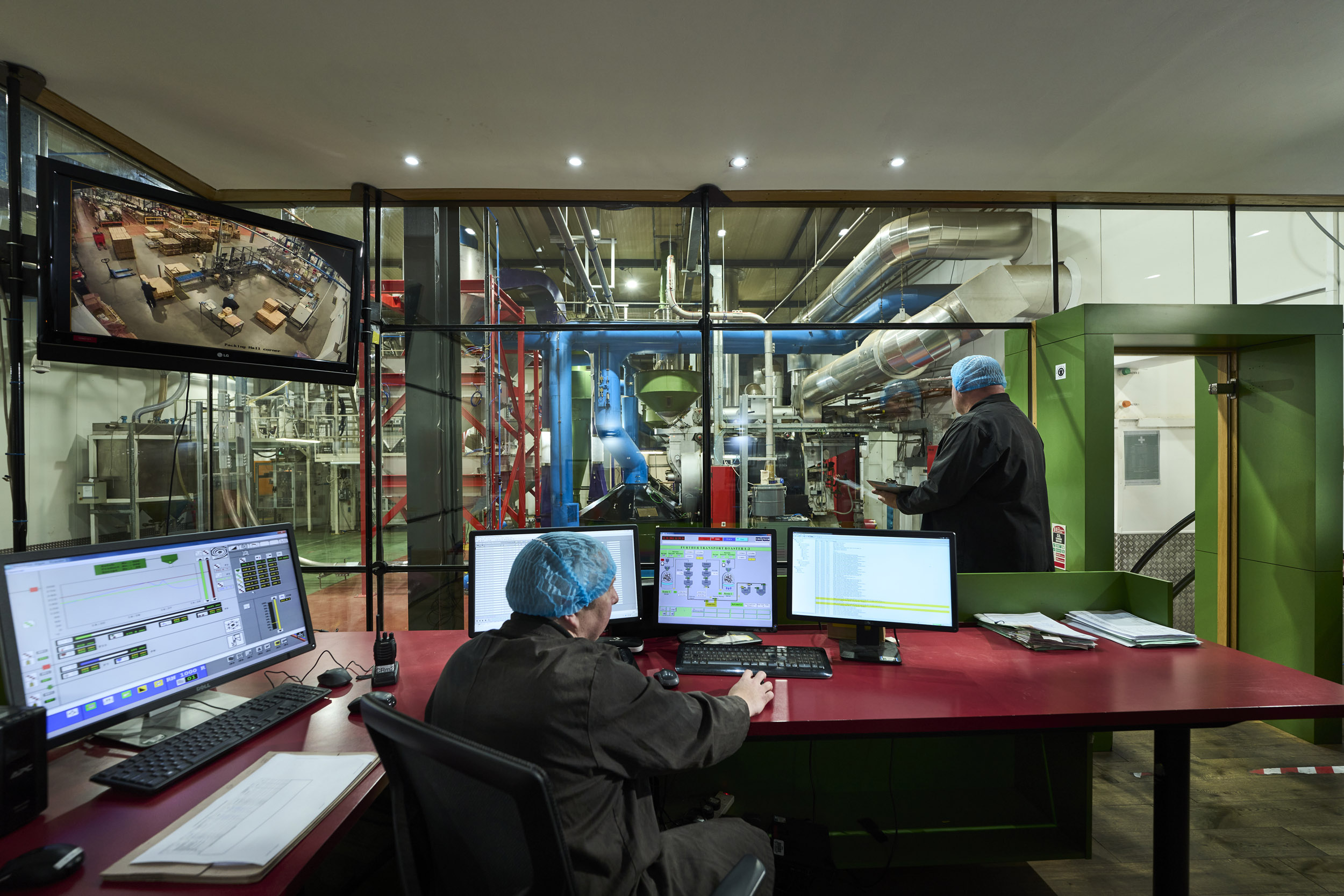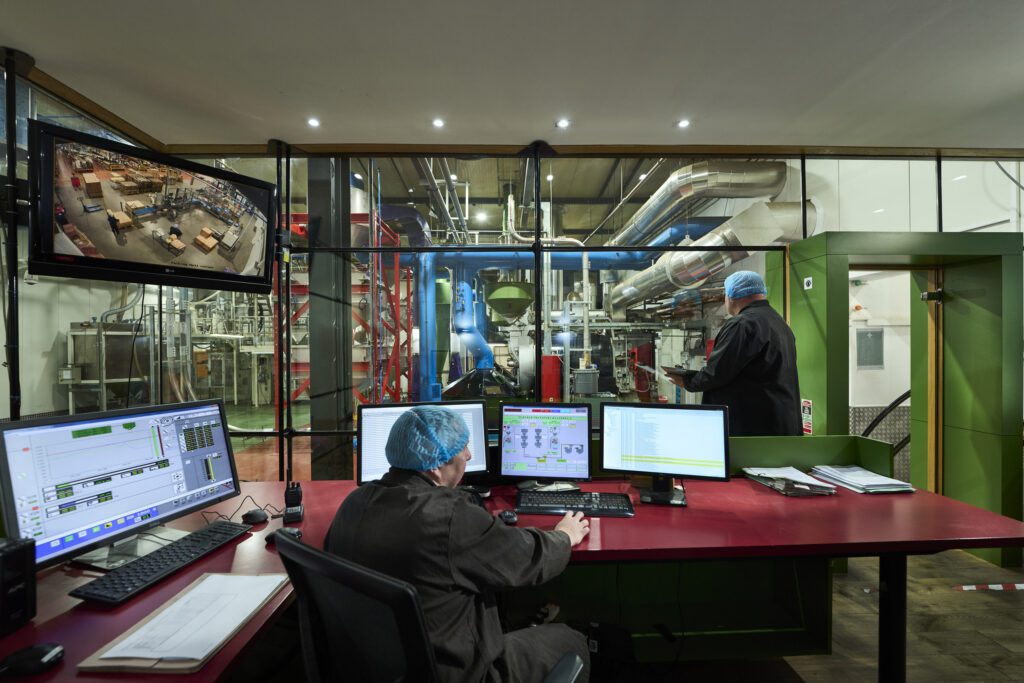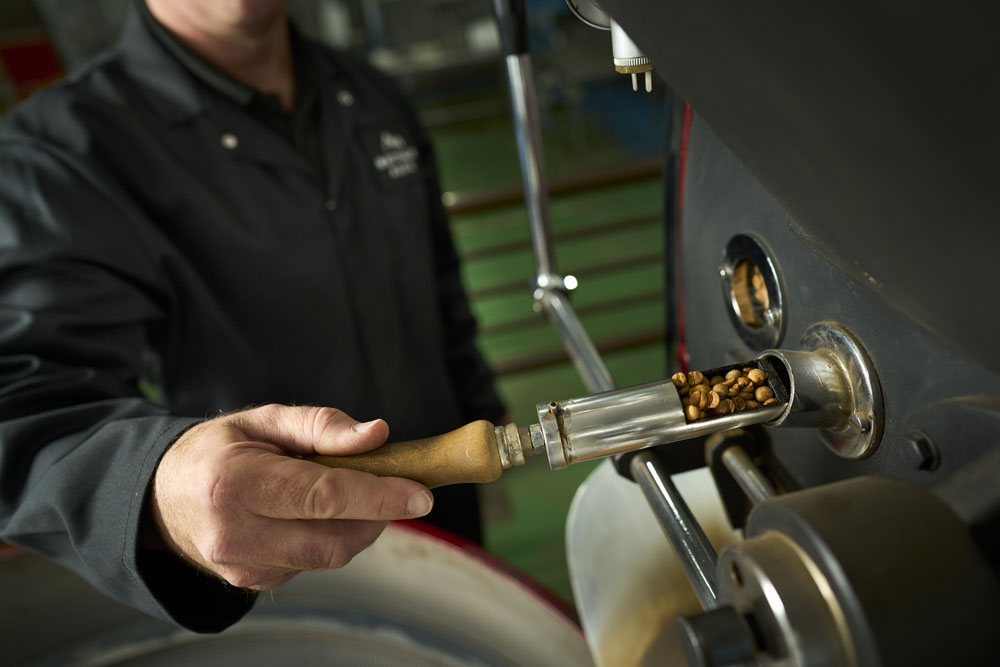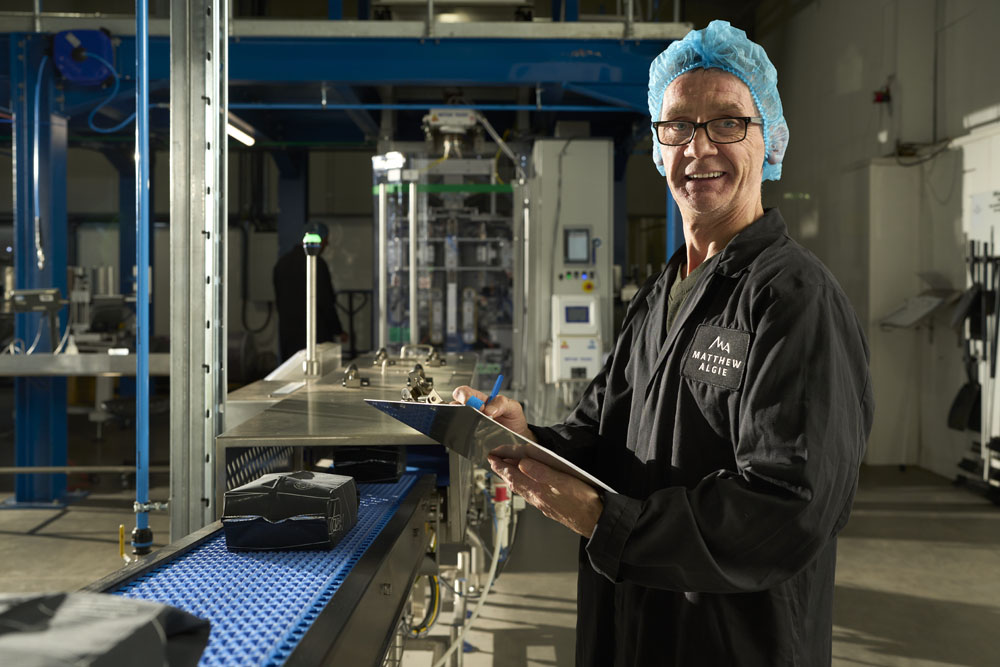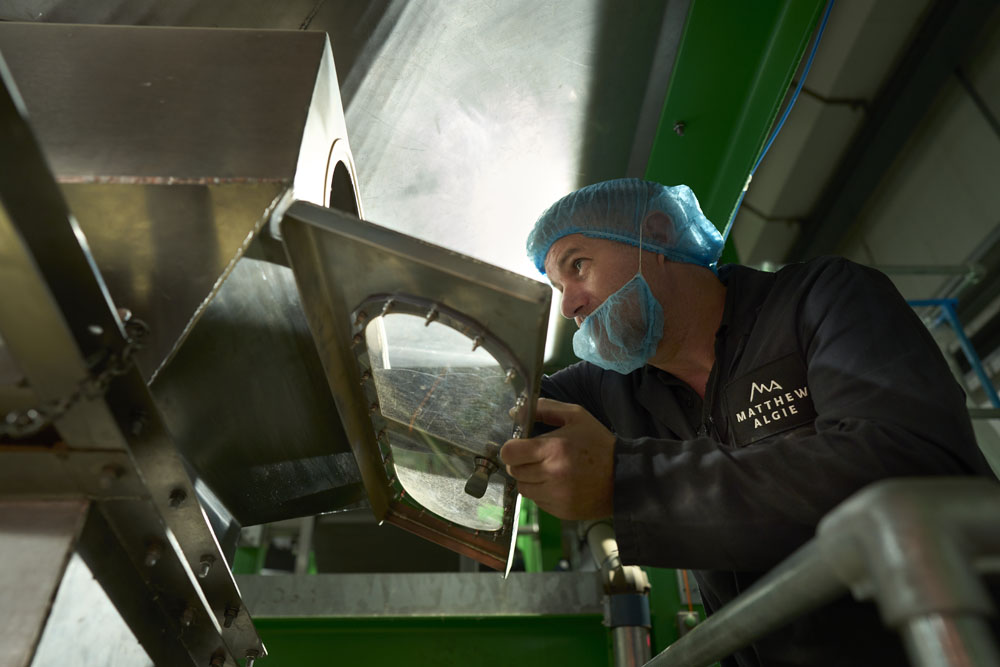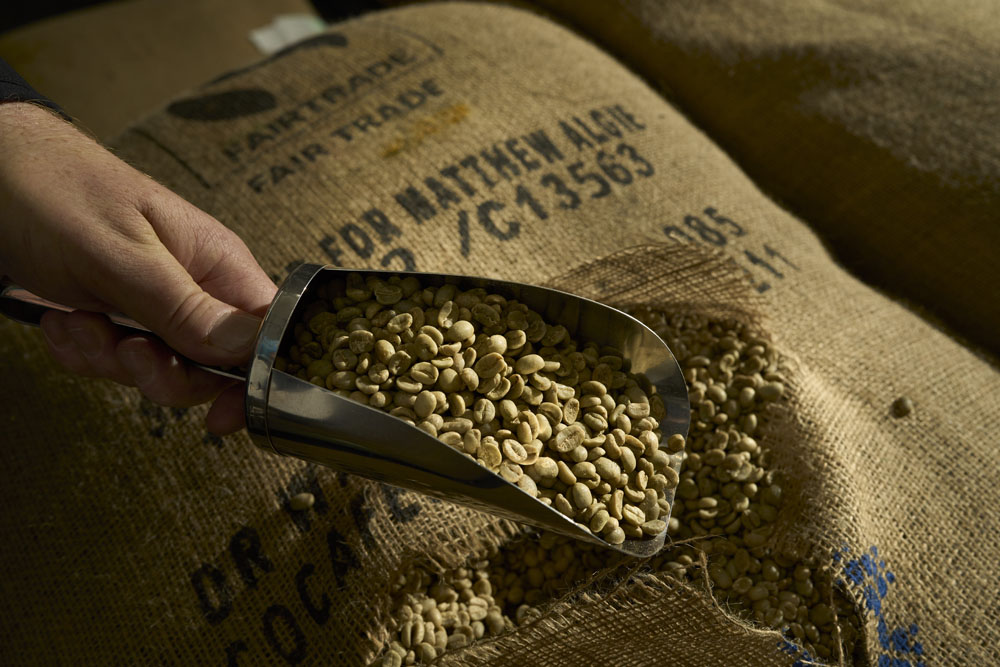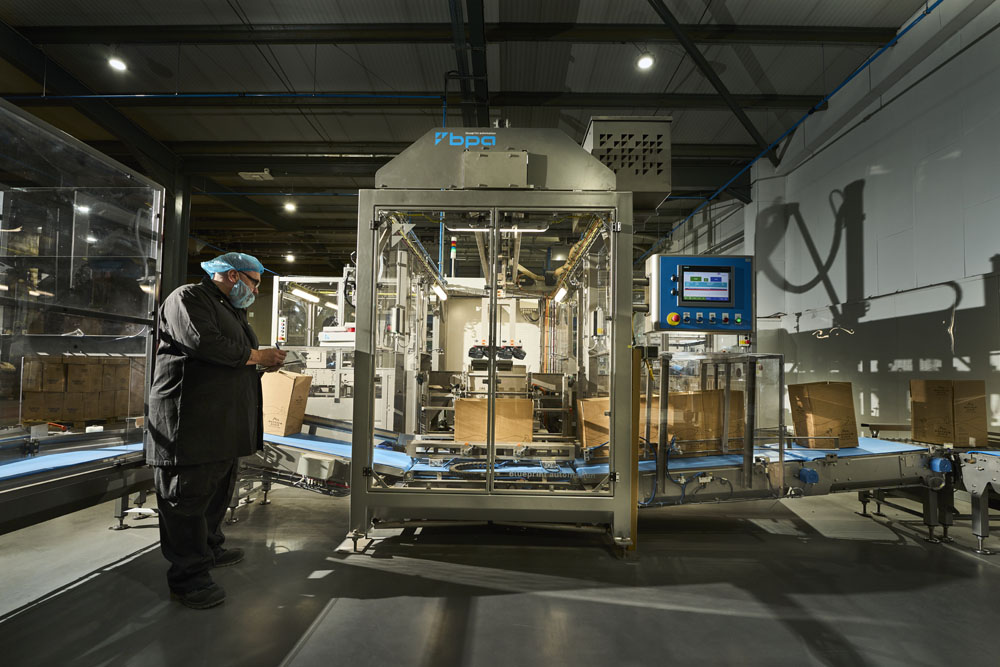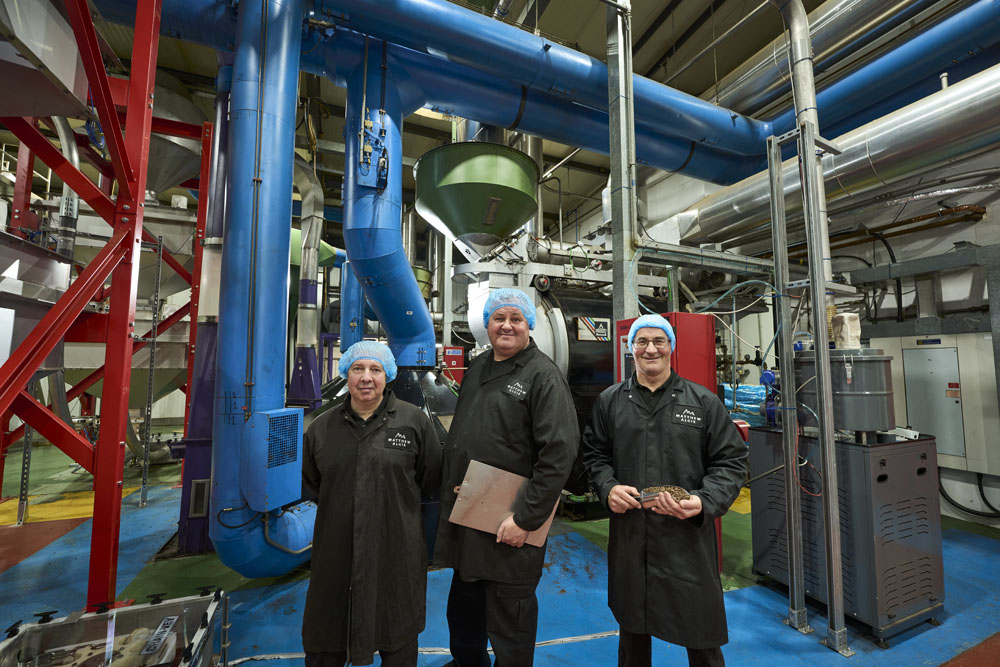The roastery is where the magic happens
We’re fiercely proud of our award-winning roastery. Since 1964, we have been roasting coffee at our site on Lawmoor Road in Glasgow.
Coffee roasting is an art that requires a great deal of knowledge, skill, and precision. At the heart of it all is the roasting process, which transforms green coffee beans into the aromatic and flavorful beans we all know and love. As coffee beans are roasted, they undergo a chemical reaction that causes them to change color, release oils, and develop complex flavour profiles – it’s magic!
We take great care in selecting the finest beans from around the world and roasting them to perfection. We use state-of-the-art equipment and employ a team of expert roasters who carefully monitor the roasting process to ensure that each batch is roasted to its optimal flavour profile.
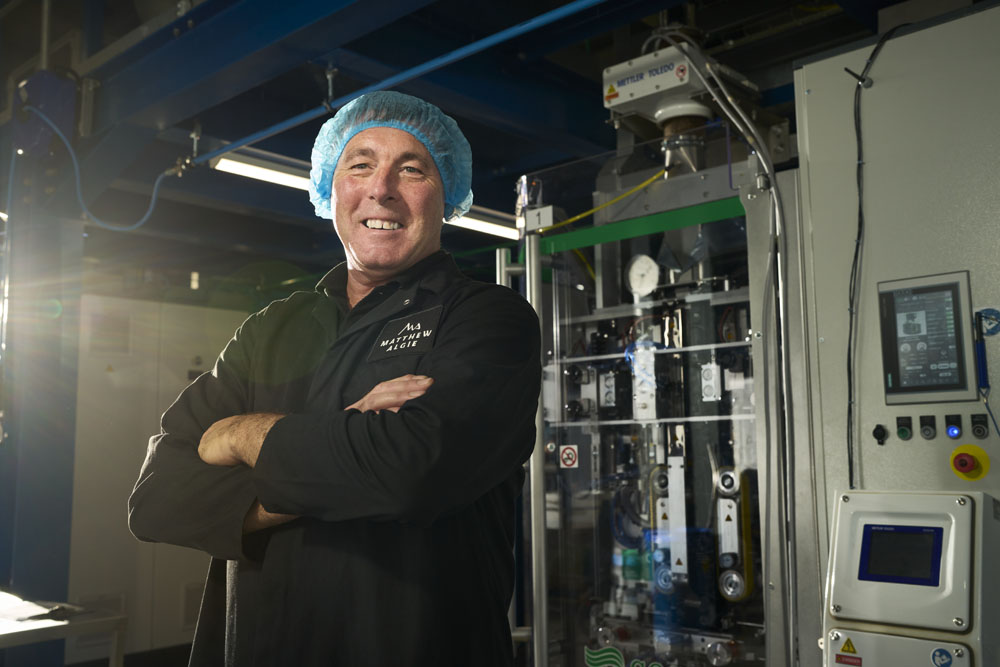
Green Beans from Origin
At our roastery, we receive shipments of green coffee beans from various countries around the world almost every day. Traditionally, these beans were delivered in Grainpro hessian sacks, which helped to preserve their quality. However, in 2023, we made a switch to food-grade loose bulk bags for our container deliveries of green coffee from origin, instead of using approximately 300 hessian sacks. This change not only enables us to transport more coffee per load but also helps to reduce our carbon emissions while streamlining the process from port to roaster.
Our traceability document system is top-notch and allows us to track the coffee’s origin down to each individual farm. Before roasting, we take extra care to ensure that the beans are thoroughly cleaned with a vibratory sieve to remove any loose bits of sack or other foreign objects, to guarantee the highest quality roast.
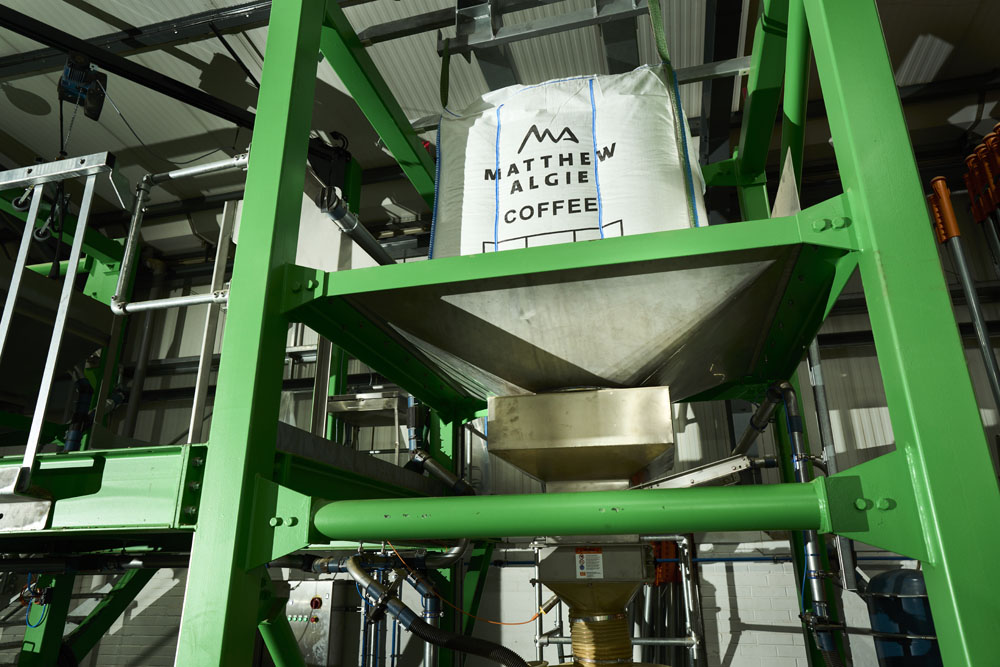
The Coffee Roasting Process
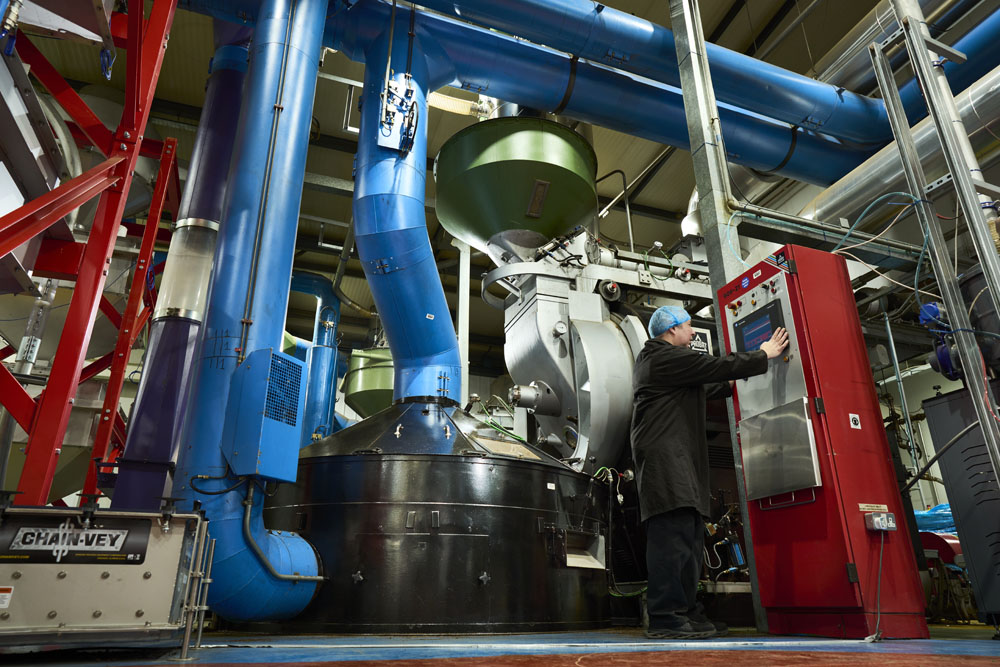
Roasting
Our coffee is roasted in traditional Probat drum roasters to release the best flavour. Each batch is sampled and adjusted by experienced professionals to ensure it’s roasted to specification. We have decades of experience in developing the perfect flavour and preserving the freshness of roasted beans. We celebrate each farm through carefully developed roast profiles.
We also have a smaller Italian ‘Vittoria’ traditional drum roaster where we roast micro-lots of coffee in batches of just 12-25kg.
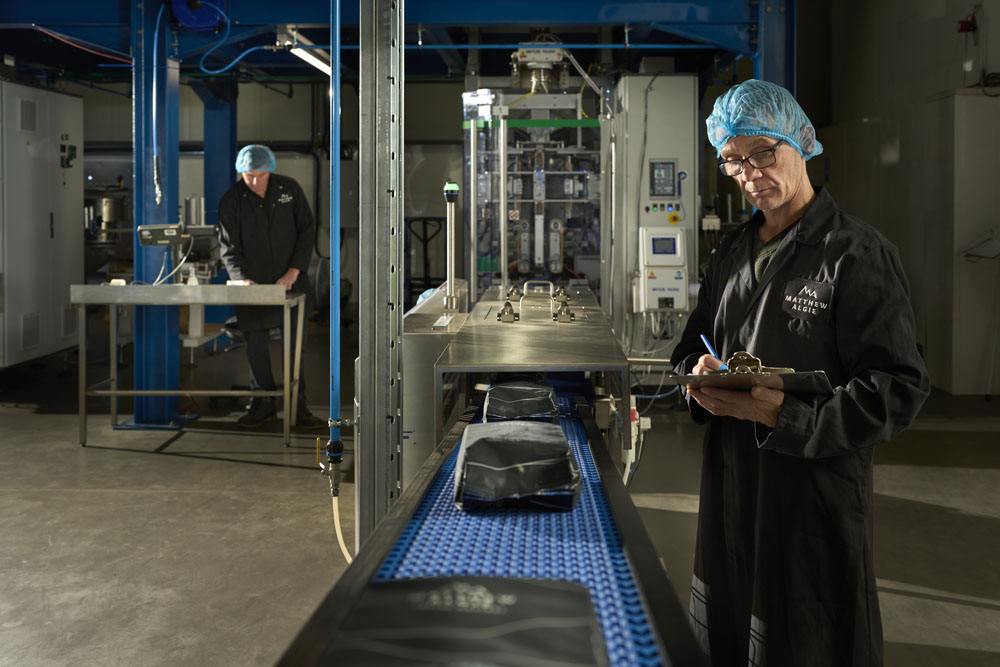
Packaging
Freshly roasted coffee can quickly turn stale when exposed to oxygen. To prevent this, we take care to pack our coffee within minutes of roasting. Our coffee is packaged in one-way valve bags that allow carbon dioxide to escape while keeping oxygen out.
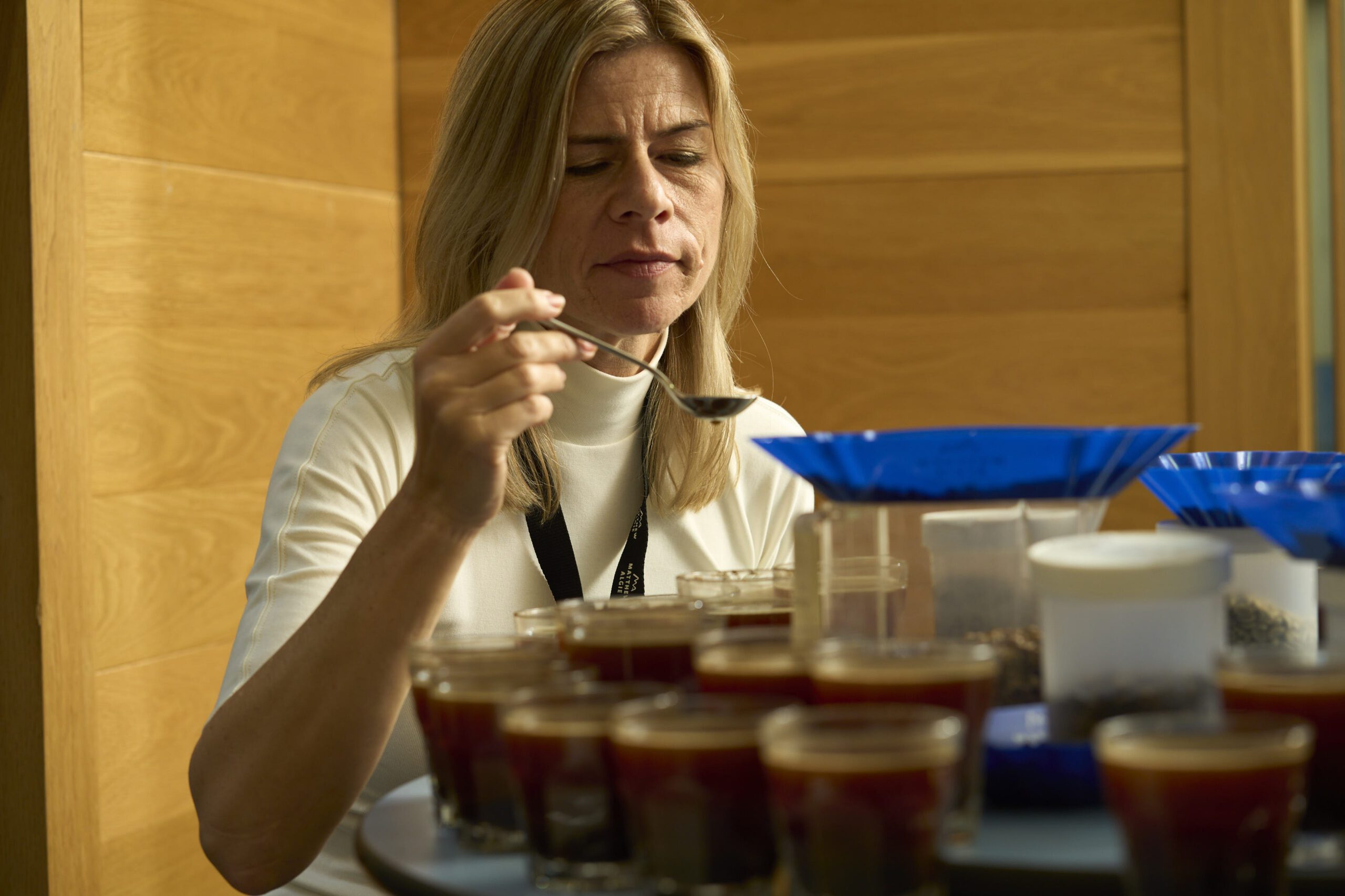
Quality Testing
We use cupping to test our coffee’s taste, aroma, mouth-feel, and quality. We cup our coffee at different stages to ensure its consistency. Before shipping, a pre-shipment sample is tested, and the main shipment is cupped again upon arrival and after roasting. We medium-roast a tiny sample, coarsely grind the beans, add hot water, steep, and slurp to test. Our coffee experts evaluate the flavours and aromas to ensure the coffee is just right.
Frequently Asked Questions
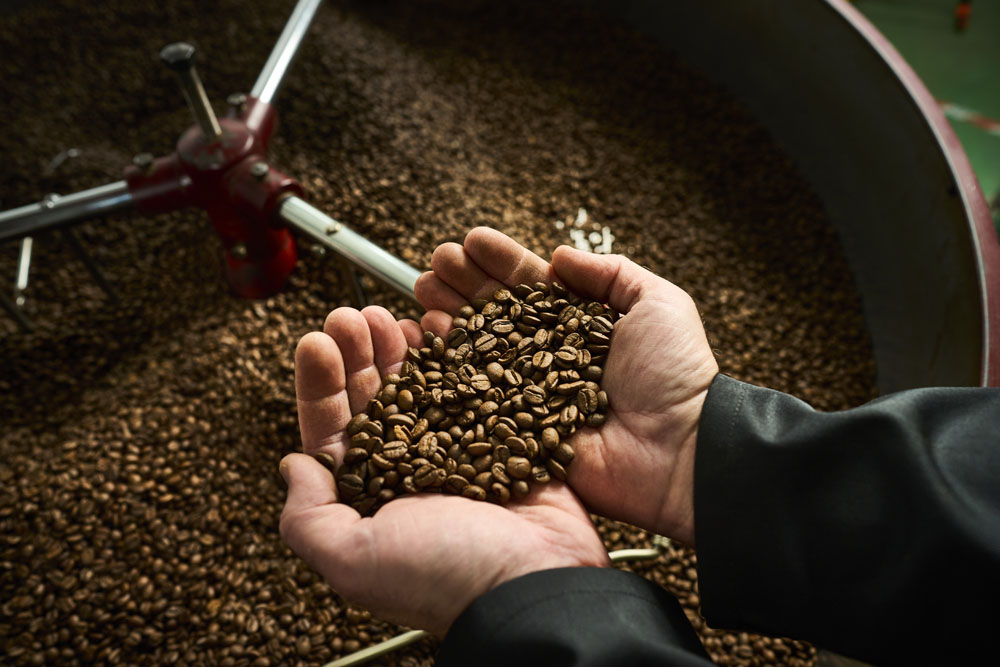
Why does the colour of the roast matter?
It depends on the type of beans, but light roasts typically have a green aroma. You can expect bright acidity, citrus flavours, and a noticeably astringent aftertaste. Medium roasts have a caramel aroma, more body, and nutty, chocolatey flavours with a smooth aftertaste. Dark roasts have a smoky aroma and low acidity. You’ll taste cocoa flavours that turn into a bitter aftertaste.
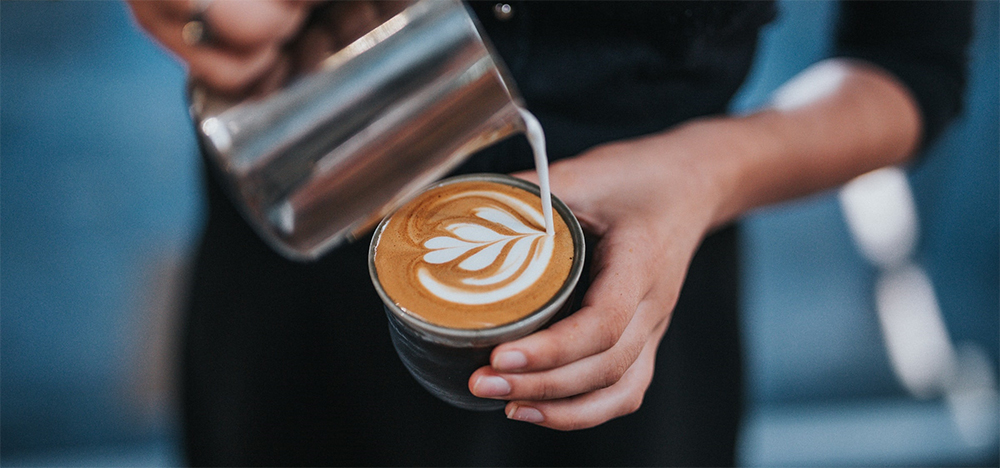
How do you make decaf coffee?
Under certain temperature and pressure conditions, carbon dioxide is a caffeine solvent. To make our decaffeinated coffee, green coffee beans are exposed the carbon dioxide from a natural spring in Germany, which extracts the caffeine.
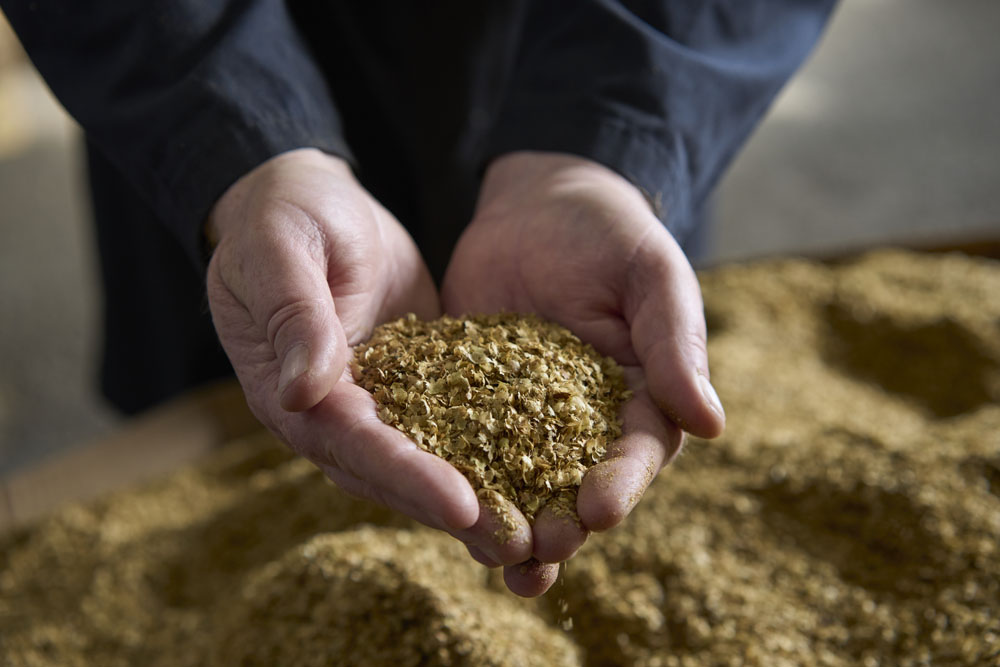
What happens to any waste?
We don’t waste anything! The hessian sacks of coffee get recycled into carpet backing or packaging for other goods. Any coffee chaff or silverskin discarded in the roasting process is pelletised and sent off to be used as a natural fertiliser or for anaerobic digestion for energy production.
Do you have a question for our coffee experts?
We would be more than happy to answer your questions or arrange a tour of our roastery for you. Our goal is to provide customers with an informative and enjoyable experience that allows them to learn more about our coffee and the roasting process. If you’re interested in scheduling a visit, please feel free to contact us or reach out to your Coffee Sales Manager for more information. We look forward to showing you around!
Contact The TeamOur Sustainability Manifesto
Throughout the many years we’ve been sourcing and roasting coffee, we’ve seen the challenges coffee farmers face first-hand. Factors like climate change, urban migration and low profitability threaten smallholder coffee farmers’ livelihoods, so developing revolutionary new ways of working is essential.
Since the mid-1990s, we have spearheaded the use of sustainability certifications, for example, by launching the UK’s first Fairtrade-certified espresso. We have also developed direct partnerships with key suppliers to raise the bar on quality and sustainability.
And it’s not just coffee sourcing. We understand that sustainability needs to be at the heart of everything we do, so we’re constantly exploring new ways to reduce our environmental impact and support the communities we operate in.
